15 Pioneer Skills We Must Learn Today
I have 15 pioneer skills I’written about today that hopefully will help save you money and my reader how to be prepared for the unexpected. I believe we are very close to economic challenges in this country like what we saw back in 2007-2009. This was the most recent recession. There have been many over the years, but this one is still in many of our minds today. House prices were inflated and families and the businesses who sell and finance real estate took on too much risk, and it came back to bite them in their pocketbooks and balance sheets. This is why I am updating this post today.
Some in the industry made out like bandits, so to speak, based on how they documented the sales and loan agreements. But we all know people who lost their jobs because building and/or selling homes stopped dead overnight. This caused a ripple effect that brought on financial challenges for millions.
Here’s the deal, much of the strength of our economy is based on the building of homes since that’s viewed as achieving the “American Dream.” It impacts every aspect of our economy when that segment slows down to any significant degree. People need housing permits, concrete to build basements or foundations, lumber, tile, cabinets, carpet, and the list goes on and on.
We need the trades workers like plumbers, electricians, and carpenters. We also need the finance industry to effectively support the building, selling, and financing of those homes. We also need the retail businesses that feed and clothe those workers and their families.
We need the housing market to be strong, but not overly inflated. It will always have cycles, and at some point, will slow down as “corrections” take place. History repeats itself, as we’ve learned over the years.
We have all heard that interest rates are going up. I have to laugh because they are still great rates right now. I remember in 1983 building a home and we were so happy to lock in a rate of 10%, YIKES! Today’s home interest rates are still really low in comparison.
I remember when I owned my mortgage company and I had two computers side by side, one for working on loan applications and one for watching the stock and bond markets. If the rates trickled up, people slowed down buying homes. If the rates were low people refinanced or bought a bigger home if their family was expanding. Some of my smartest clients downsized to pay off their homes quickly.
I was also a realtor for 12 years, so I know a lot about the housing market. I am still very active in watching how much homes are selling for and how much the seller paid in concessions. Concessions mean the seller pays closing costs or repairs.
I have always encouraged people to sell their existing home before they purchase a second one, even if the numbers show they qualify for both homes. You never want to own two homes, unless you are planning on a second home as part of your financial plan. If the market crashes and you can’t sell one of the homes, you could be in financial jeopardy. Of course, if the rental market is strong, you can become a landlord and rent it out and let the renters help make the mortgage payment.
The economy is so unsettled, that I’m anxious to remind people to learn at least these 15 pioneer skills. We need to be ready in case we lose a job, a family member becomes ill who can no longer work or care for the family, or a family member dies unexpectedly.
We need to store water, food, and cooking fuel at the very least, my friends. Here is my 15 pioneer skills list to hopefully help you deal with emerging challenges, and possibly save or make even more money as you put the skills to work for you. In other words, get your affairs in order.
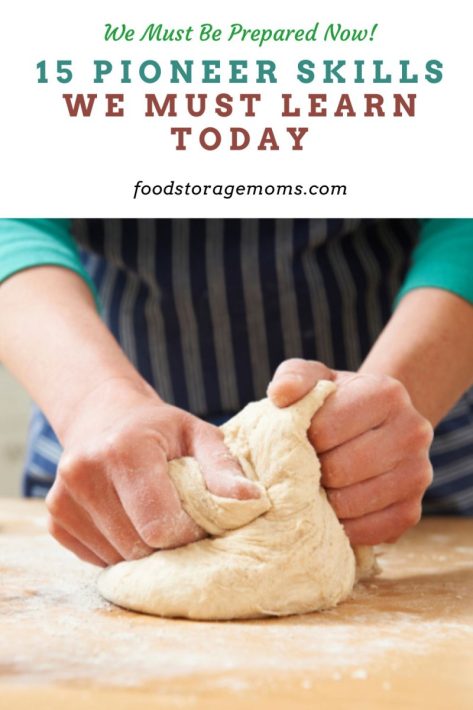
15 Pioneer Skills
1. Make Cloth Toilet Paper
I know, I can hear you say, “there is no way I am going to do that!” Well, we may have no other choice. I highly recommend cutting flannel into 7-inch squares. I cut hundreds into 9-inch squares, but I think smaller is better. You can buy new flannel or cut worn-out nightgowns, or go to local thrift stores and start cutting squares from shirts or nightgowns. If you can serge them, that would be awesome.
You can also save phone books and newspapers, or use leaves. I’d rather have some soft cloths to use, and hopefully, we’d have some water to wash them properly. I have a lot of TP stored, but when it’s gone the stores may be empty.
This is one easy way to become more self-sufficient. Yes, it’s not as convenient, but personal hygiene is important, and this is a step you can take that will mean a lot to you and your family.
2. Monthly Homemade Menstrual Supplies
I wrote a post on making your own menstrual monthly supplies. Trust me, if you don’t need them anymore, there is a neighbor that may need these. Oh, I can hear some young girls say, “no way!” Well, if the stores are closed, you will use them or it’s going to be very messy and uncomfortable. Pattern For Menstrual Pads
3. Make Elderly Diapers
As much as we hate to think about this, there are a lot of elderly people that are affected by incontinence. I know you can buy some reusable adult diapers, but you can also make some with diaper fabric. I have purchased some, just because I have some neighbors that may need them should we have a grid down. And we will. Please be prepared for it. If the stores are open the shelves will be empty very quickly. These are washable Adult Diapers
4. Buy or Make Baby Cloth Diapers
Cloth diapers will be critical to have on hand. My daughters grew up with cloth diapers and waterproof pants. They make really awesome ones now that are washable. Yes, you will have to hand wash them when we lose power, but hey, everyone wants to be comfortable, even our sweet babies or toddlers. They have fancy ones, but you can just buy these inexpensive products. Cloth Diapers and Waterproof Pants and Diaper Pins or Fancy Pancy Diapers
5. Ditch Paper Towels
Here’s the deal, the kitchen is one place that is very easy to use cloth “paper” towels, you may save hundreds of dollars per year by making this switch. I like a certain one because they are thin diapers, but thick enough to absorb the liquid. Cloth Towels will change your life. Yes, you must wash them, but I wash whites almost every other day so that works for me. These are cheap and wash and dry by hand easily. Just another one of my 15 pioneer skills that work by saving us money.
6. Learn To Sew and Quilt
I’m grateful my mother taught me to sew, I started out with an apron. Easy peasy. I grew up taking sewing classes at school that sharpened my skills even more. I also learned to cook at school, even though I was already cooking from scratch at home. I always enjoyed learning a new technique and I will be forever thankful for those patient teachers as I remember learning to make my own clothing.
I also made my daughters’ clothes for many years. I know fabric may prove to be more expensive than buying products from your local Target or Wal-Mart, but there is something to be said for being able to make things on your own when the stores have limited inventory, or have closed all together.
I’ve purchased sewing machines for my daughters and some of my grandkids if they wanted to take sewing lessons. For years I didn’t live near any of them, but when we did get together, I will always tried to teach them a new trick or two on the sewing machines.
This grandma was so proud when she learned one granddaughter was making bobbins, that may sound like a small thing but it’s not. If the bobbins are “squishy” they will not work. So to hear one granddaughter making several bobbins out of different colors of threads was music to my ears. Proud grandma here.
Please note, be sure and get your sewing machine serviced, cleaned, and oiled at least yearly. It should last a lifetime. You can oil it yourself, between servicing. If you know how to sew, please teach others, and if you feel so inclined, take sewing lessons yourself. If you have a good machine anyone can sew, I promise.
The picture above is of my oldest grandson, Jake. He wanted to make his own pajama bottoms. He said, “grandma let’s make our own pattern.” We then made our own pattern, gotta love it. It reminded me of how I picture skills being handed down just like they did back when people were involved with setting up their first homestead.
Just like other skills used at the time, such as a butcher, baker, and candlestick maker, we can pass on those things we’ve learned from others to bless our lives and the lives of those around us. Maybe it’s learning to work leather, raise chickens for eggs, raise livestock for meat, have our own hives for honey, have rabbits in pens, make our own butter and cheese, etc.
There are so many skills to learn and pass on. Which ones have you mastered?
Did your mother or grandmother piece different shapes of fabric together to make a quilt? I know my favorite all-time quilt was one my great-grandmother made with strips of fabric I recognized from dresses my mom made for me. I call it a treasure, hand sewn together and then hand quilted.
7. Sharpen Your Garden Skills
Please learn to plant at least potatoes, anyone can grow potatoes, I promise. Get good potato seeds, preferably Non-GMO varieties. You can plant them non-stop over and over. Plant, grow, harvest, and start another planting of potato seeds. This is where I buy all of my seeds: SeedsNow
If you can take some garden classes that would be awesome. I have learned to grow a garden by trial and error, but I never give up. I will try year after year until I learn how to work with the soil where I live. I have had a garden for over 60 years now. I learn something new every year.
Herbs and tomatoes are also pretty easy to grow. We all use herbs and spices, so why not get them from your own garden? There is nothing more rewarding than growing some of your own food. You can not only save money, but it could make a difference during an emergency situation since you’ll have food on your table. It may be a whole new mindset, but growing your own food can also provide an opportunity to eat more healthy meals, something we all want to achieve.
Please don’t wait until next year to “learn to grow a garden,” it will be too late. Start this year, and grow whatever your location’s weather can tolerate. I can almost taste my fresh tomatoes. I’m waiting to put them in the ground when the last chance of frost is passed.
8. Wash Clothes by Hand
I have talked about having the equipment to wash your clothes by hand. You can use a bucket or washtub. Please be prepared to be able to wash clothes before we lose power for days, weeks, or months. The laundromats will not be working if we lose power. The bathtub is not a smart idea because if the sewer lines don’t work, the drains in the tubs won’t work, or they may back up.
We all take our modern conveniences for granted, like our dishwasher and clothes washer and dryer. Learn the skills necessary to accomplish the same tasks by hand, you’ll feel more confident you’re better prepared.
Please get a clothesline or wooden clothes rack to dry your clothes. Don’t forget the clothespins, you will need them. Update, my favorite emergency washing machine is a Lavario (currently unavailable).
9. Make Laundry Soap
This is a really easy way to save money and use one of my 15 pioneer skills at the same time. It’s almost comical how cheap it is to make. Here is my recipe:
1 Fels-Naptha Bar-grated either by hand, food processor, or salad shooter. You can use your own favorite bar of soap, but I’ve found the Fels-Naptha Bar is very effective at getting out stains.
1 cup Borax Detergent Booster
1 cup Super Washing Soda (not regular baking soda)
Put these 3 ingredients in a blender to blend and grate the Fels-Naptha even more. After doing this it will look just like the store-purchased detergent, but will not include all the “fillers.” You’ll use less product per load and will have fewer “bubbles.” Remember, just having bubbles doesn’t mean clean…..I use 1 teaspoon per load. I have a HE-High Efficiency washer and it works great! In case you missed this post, DIY Laundry Detergent
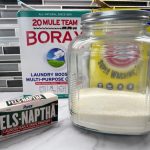
- 1 bar Fels-Naptha Soap-grated either by hand, food processor, or salad shooter
- 1 cup Borax Detergent Booster
- 1 cup Arm and Hammer Super Washing Soda (not regular baking soda)
-
Grate the bar of soap by hand, or use an electric vegetable grater.
-
Put these 3 ingredients in a blender to blend.
-
After doing this, it will look just like the store-purchased detergent, but will not include all the “fillers."
-
You will use less product per load and will have fewer “soap bubbles."
-
Remember, just having bubbles doesn’t mean clean. I use 1/2 to 1 teaspoon per load, depending on the size of the load.
-
I have a HE-High Efficiency washer, and it works great in regular washing machines as well.
-
Store the finished product in an airtight container, preferably glass to keep it dry.
-
I store some in 5-gallon buckets, but I don't live where it's humid. Just giving you the heads up.
10. First Aid Kits and Healing Skills
Oh, I love first aid and healing myself. I have a great Medical Handbook that I highly recommend. If we have a disaster and the pharmacies are closed and the hospitals are overflowing we must have some first aid supplies at our house. If we have a pandemic, we must be prepared with essential oils or over-the-counter products we are used to using. Here is my First Aid Kit List, you can add your own favorites to my list. Survival Medicine Handbook
Besides having the first aid kit, we need to learn how to use the supplies in the kit. Knowing what we have and how to put it to use will prove to be an essential skill. We hear all the time how even some young people have saved others’ lives because they know first aid skills. Consider signing up for a class that you and other family members can take together. It could be fun!
11. Baking Bread
You don’t have to buy a book to learn how to make bread. I have all of my no-fail bread, cinnamon rolls, dinner rolls, and so much more on my blog for FREE. I feel God has asked me to share my bread-making skills with others. This is my all-time biggest post on making bread Linda’s No-Fail Bread Recipes. Here’s the deal with making bread, if you have FRESH ingredients you can make bread, I promise. Oh, and my cinnamon roll recipe is the best in the world, enjoy!
If you want some happy campers in your house, have some warm bread or cinnamon rolls on the counter waiting for them when they get home from school or work. Trust me, nothing tastes better. Have some butter, jam, jelly, or honey nearby so they can slather one or more of them all over your homemade goodie, they’ll love it!
12. Cook from Scratch
Please learn to cook from scratch, the drive-throughs will not be open or available if we lose power or the ability of the food trucks to deliver food to the grocery store chains or restaurants.
Learn to make white sauces, beans, rice, and pasta dishes, to name just a few meals. Browse my entire website, I cook from scratch and have since I was very little. Here is my White Sauce that’s very easy to make.
Here is a list of 101 Budget Meals by Linda
When the power grids go down in the US we will be in big trouble. Our country is not prepared to handle a grid down. I am so tired of a few of our government workers telling us our country is resilient. We are not. This country is totally unprepared for a cyber attack and/or grid down. It would take 20-30 years to replace or repair our old decrepit power substations. PLEASE read Ted Koppel’s book “Lights Out“. Don’t be fooled into thinking we are going to be alright, we aren’t going to be.
13. Cooking Outside
If you can start a fire, please store some matches, you’ll need them. If nothing else, learn to cook outside with a Dutch Oven over charcoal briquettes. You don’t have to buy several cooking devices to prepare meals outside, or even to boil water. One Dutch Oven will work. Please store charcoal briquettes without lighter fuel built into them in some airtight containers. Lots of charcoal. I prefer the 6-quart Dutch oven size because it’s easy to lift since it’s smaller. Please look at the lid on the Dutch Oven, this lid makes it easier to put charcoal on the lid when cooking. Lodge gave me permission to make this printable Lodge Dutch Oven Cooking Sheet:
Dutch Oven Cooking Times by Food Storage Moms
I also like the idea of having a SunOven. It uses FREE sunlight to cook your food. I put one on my patio so it’s ready to use out on my back lawn anytime. I’ve cooked bread and casseroles many times. They seem to always turn out
Another handy product is a butane stove. I used one for a few weeks when we had to wait for the plumber to swap out our electric stove for a new natural gas stove. I found the butane cooked fairly fast and the small tank lasted longer than I expected. There are lots of product options, check them out.
You should also consider small camp stoves that a fueled by propane. They are generally reliable and fairly cheap to run. As with other fuel-based options, fuel storage can become an issue. Always follow safe practices as you cook with and store various fuels.
14. Canning and Preserving Food Safely
I’m going to caution you about reading what is being taught online concerning canning and pressure canning food. Some will tell you certain food items are safe to can/preserve, they are not. I’m not going to argue with anyone, I have my Master Canning, Preserving Certificate from our state extension service. It was a fun class and I even learned a few new safety items for canning.
Here are the only books I recommend for canning or pressure canning food (be sure and check with your local county extension service to see if you can take the classes for canning safety): USDA Canning Guide or The Ball Canning Guide
If you grow your own food and then can them for storage it is the best of both worlds. Having a fresh jar of canned peaches with your breakfast is a meal addition to die for!
15. Learn to Use Tools
The time to learn to do carpentry is now, not next year. If we can learn to work on cars, tractors, trucks, etc. the door is wide open to be self-reliant. If you have tools to cut tile, hammers, screwdrivers, and wrenches, please teach your offspring how to use them. Build a shed or shelter, finish a basement, learn to do plumbing, and electrical work, life is good if you can repair your own washing machine. These 15 pioneer skills can carry you through almost any disaster, I promise.
Final Word
This is a short list of 15 pioneer skills, how many do you know? Can you teach others? Do you have skills you think need to be added to my list? Let me know and I’ll pass them along.
Keep in mind that you can use these and other “pioneer” skills as bartering chips. You may not have extra preparedness items to share or barter, but skills can be used by others in need anytime. Please be prepared for the unexpected. May God bless you and your family.
My book: “Prepare Your Family For Survival”
Copyright pictures:
Covered Wagon: AdobeStock_173076754 by BJphotographs, Kneading Dough AdobeStock_78954368 by highwaystarz

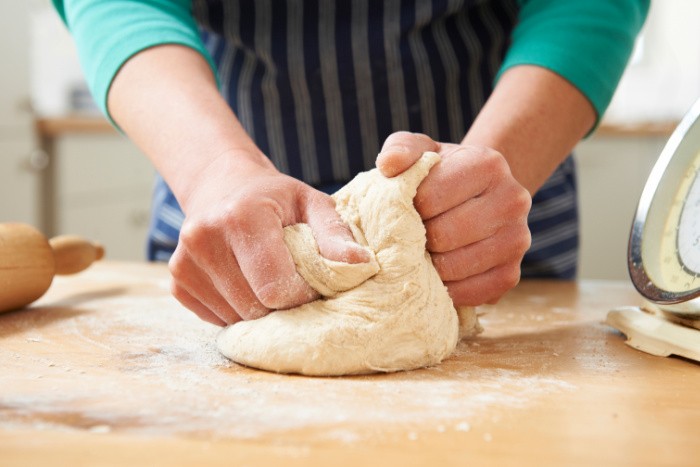

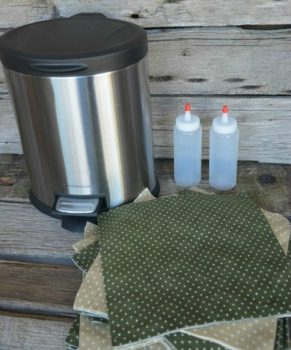
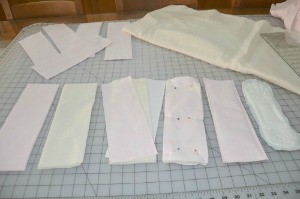
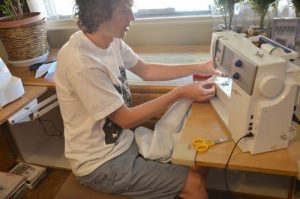
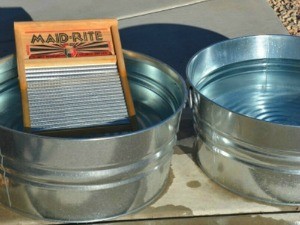
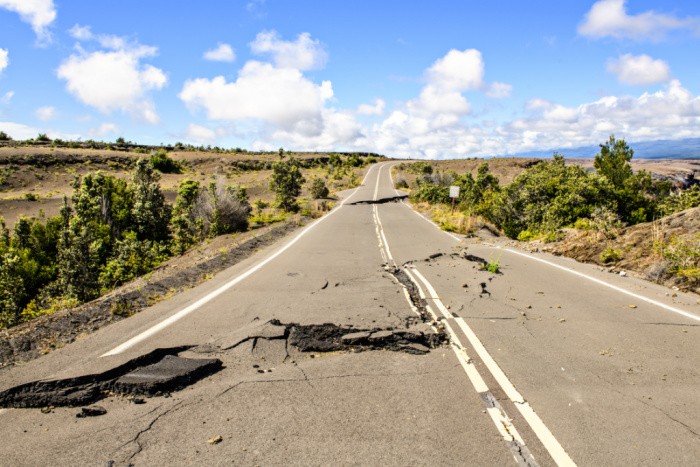

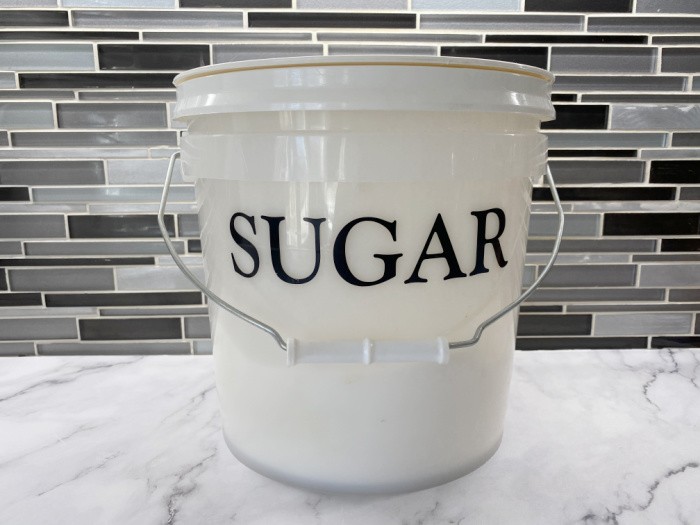

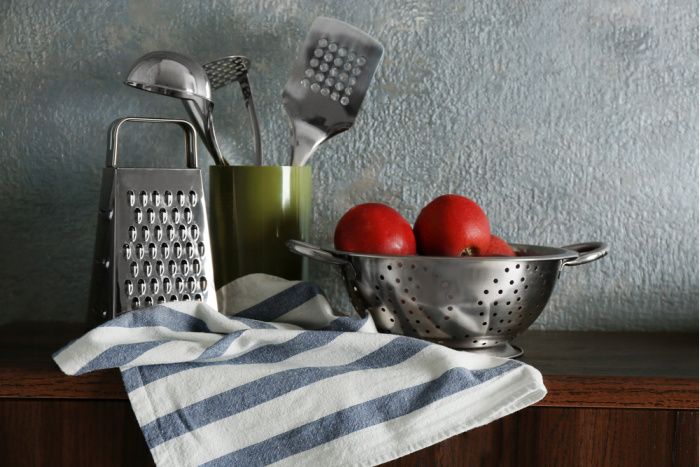
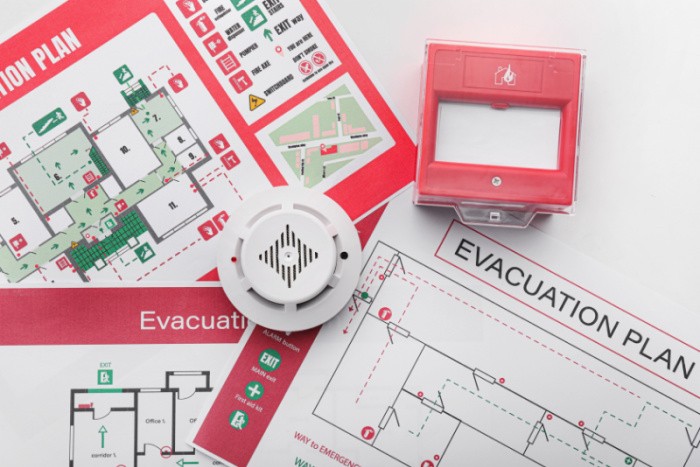
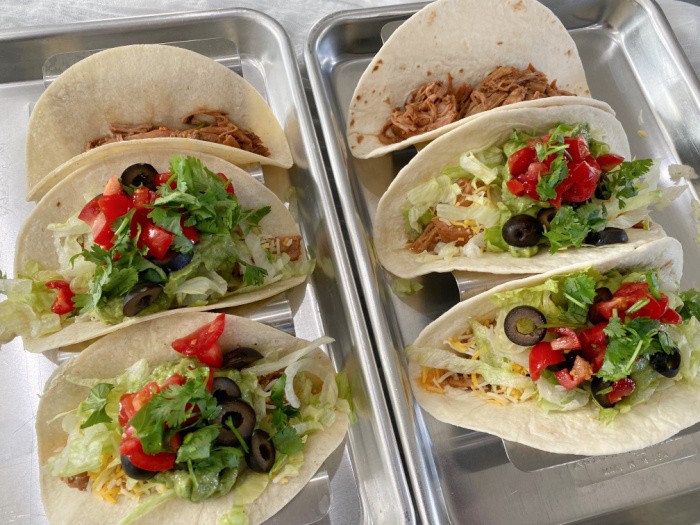

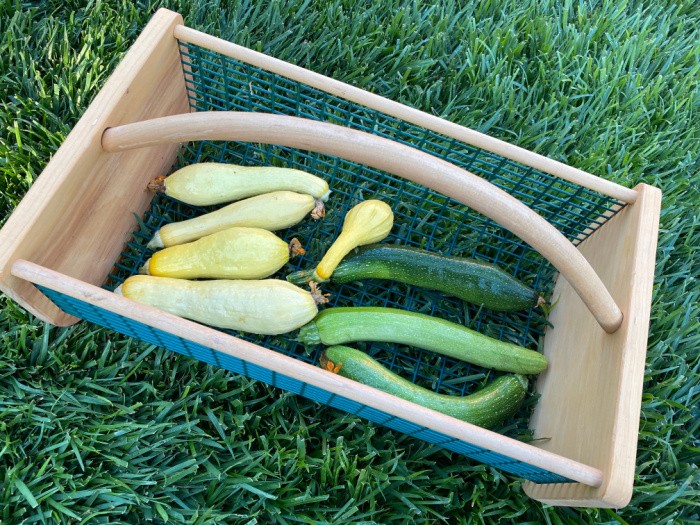
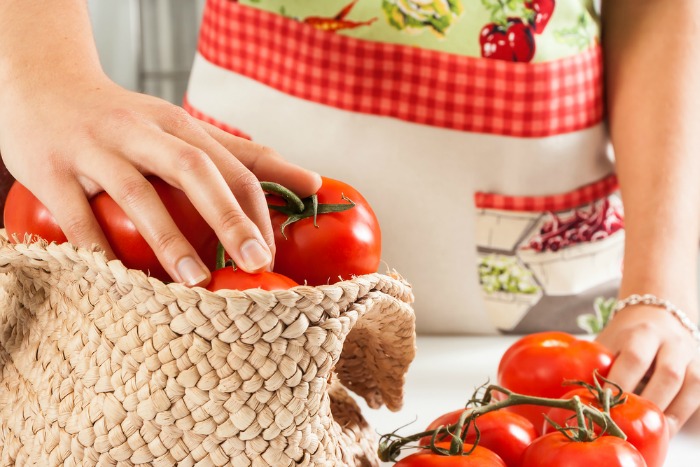

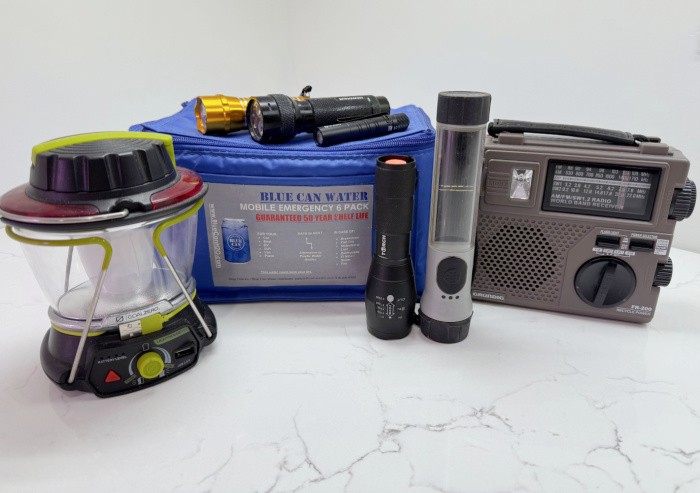
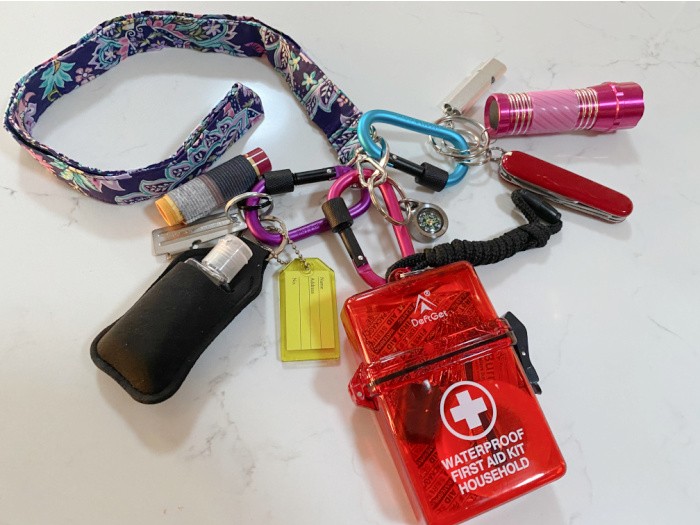






I already know most of these things. I even know how to make lye soap. I love making it and using it. I’d like to know how to make the adult diapers though. I will make some of the menstrual pads though.
Hi Deborah, wow I don’t know how to make lye soap! I have a 5-gallon bucket of my homemade laundry soap, that should last my lifetime! LOL! The adult diapers are going to be needed big time in my neighborhood, we have a lot of elderly people. Life is good if we have supplies. Linda
Linda, making lye soap isn’t hard at all. You can look on YouTube for instructions and go to some of the soap making supply places for recipes and directions. A good book is a good thing, too. You can also learn how to make lye from hard wood ash. I love getting emails from you. I love it! I think old ways are best anyway.
Hi Deborah, I have a friend who makes soap, and I really admire those that do. You are so kind with your words, it’s people like you who keep me going. I thank you from the bottom of my heart. Linda
Wow. I can’t thank you enough for this list. You won’t find all this info in one place anywhere. This is incredible. I’m thinking that having a bolt or two of extra flannel in storage wouldn’t hurt either for what may come. Along with learning to sew, it probably would be good to know how to sew NEATLY by hand. Growing up, my aunt was frustrated at my hand sewing skills that to her looked like basting threads. That generation knew how to make hand sewing look neat and sturdy.
There is so much here. I’m printing this out and having the family as a whole look at this list. Like you, we’re feeling like the economy might be heading south. One other thing I thought of for the list would be how to make shoes or moccasins for growing feet or shoe repair skills for shoes that are wearing out.
Oh, Debbie, this is so funny that you mentioned making shoes or repairing them! When my girls were little I made their dresses, underwear, swimming suits and t-shirts. I always wished I could make shoes! I’m with you a bolt of flannel would be awesome! I donated all of my fabric but kept all of my flannel. I started cutting it up and serging a little supply at a time. I have a friend that has a treadle sewing machine. I told her to never give it up. She’s had it serviced and it works great. I’m glad you can use my list, I’m hoping all neighborhoods start to realize we need these skills now. May God bless us all! Linda
I’m Native American, so I was interested in learning to make moccasins and they’re perfect for kids and growing feet. If you wanted to, you can make moccasins and then glue an old sole on them or take extra leather and glue them together to make a sole if you want something closer to hard shoes. I found out that unlike the shoes of old, shoes today are LOADED with glue. That’s what gives them shape and holds everything together. Learning to work with leather is a great survival skill too. In the old days, an Indian woman carried her awl In a decorated pouch and daily carried it at her waist, ready to do leather work. It also served as a self defense weapon in case she’s attacked.
Oh, Debbie, I love your comment! I meet a Native American every week with a few friends for breakfast. Her name is Owl, I have learned so many wonderful things from her. I would love to learn to make moccasins, I’m all over this comment. I need to find an awl. I love your comment, I will ask Owl where to get the leather here. Thank you from the bottom of my heart! This is one skill I want to learn. Linda
JOAnn fabrics in my neck of the woods has a very nice awl for under $5…might be under $4. Then I used a 50% coupon. Find it NOT with the leather (that one’s expensive) but find it with the sewing notions. Mine has a nice green bulb at the end. I got rid of my old one and use the one from JoAnn’s. Theirs has a safety cap on it which I like because I’m always sticking myself with it. They carry leather too. There are some moc kits. I bought one and then made a paper pattern of it and kept it for more pairs. You can decorate them with beads or leave as they are. I like the name Owl. My Indian name means “Difficult.” I think it came from the birth being difficult. My English name is the same as a gazillion others. Even this site has many comments from Deb, Debbie, Deborahs and all other sorts of busy bees.
Hi Debbie, I will have to go to JoAnns and look for one. Thanks for the insight. I didn’t know they carried leather. I love your name “Difficult”, your birth must have been difficult. Your poor mom. I’m going to look for the one with the green bulb, thank you so much. Linda
You can also make the soles, tops of mocs the traditional way, but place insoles from other shoes inside to make them more comfortable for wearing on uneven terrain. Keep a supply of insoles from old athletic shoes and you will have them to reuse them for this purpose. Also, hoard old wool blankets. These can be used to make coats and pants for winter.
Hi, Bill, great comment, Linda
Debbie O AKA Difficult, you are one awesome lady. I love the Native American (Indian) ways. I admire them and their ways. I’d love to learn more from them. My husband’s family has Indian blood in them. Not sure how much, though.
I was called Debbie for the first 60 years or so of my life. My name is Deborah. I also had a difficult birth. My mothers veins in her uterus burst and I was born emergency C section. They cut my face. The doctor told my grandmother that there was little chance that Mother would make it and none that I would. But here I am at almost 71.
HI Deborah, oh my gosh, that would have been a scary birth for sure. Glad you survived!! Linda
Thank you, I have a HP washer and plan to make your laundry soap. Some of the items you discussed I hadn’t though of before. I have made my own dish clothes and cleaning clothes. I will make more and use up the scraps of flannel I have.
Hi Linda, I love hearing you make your own dishcloths! My mom used to make them and I still have a few of them! I love hearing you are saving your flannel, good job! Linda
Knowing how to can safely is one of the most important skills that a person can have if there is a long term power outage.
Hi Janet, I’m extremely nervous observing FREE or books or classes on canning that I know are not safe. I realize people want to make money on their blogs, but why not teach people to make bread for free? I do! Plus the canning books are so incorrect, things have changed since our grandma’s canning. Tomatoes are not as acidic. I pray people will teach correct methods but the books or webinars I have watched are wrong. It’s scary and unsafe just to make a buck. Please get the word out that you don’t have to pay money to buy canning books that are not safe. I never share FREE canning books on my FREE Ebook page. Nope, it’s not going to happen. Be safe and stay well. Linda
Whenever I can, I get out the USDA canning book, and look it us each time. There is a wonderful chili recipe in there, that I have to make soon. Canning advice from anything other than an expert is russian roulette.
Hi Janet, that’s my favorite canning book! I need to make that chili and pressure can some. I love your comment “Canning advice from anything other than an expert is Russian roulette!” I totally agree. Love this comment! Thank you, Linda
Hi Linda,
Since this month was St. Patrick’s day I bought cabbage for 25 cents a pound. I have my mom’s
kraut cutter and shredded 3 big heads of cabbage. I ended up canning 20 pints of homemade kraut. I know
we are talking everything homegrown if we can but when you can buy cabbage so cheap, it is well worth it.
Also you mentioned storing up on matches, they are a little harder to light but I work at a convenience store and we will give you matches if you can’t afford a lighter. Get a book or 2 each time you stop in for gas. Free is always better.
Right now it’s still a little cold to plant my garden but I am ready. come on sunshine and warm weather.
Hi, June, oh my gosh I love the free matches!! You rock with FREE ideas! The cabbage at 25 cents is a bargain! I have never made sauerkraut, you are amazing! Linda
Linda
Running out now to purchase “flannel”. What a great suggestion! I tried to save up TP but used most of it in one year. After that i was beginning to panic about just how much I needed for a longer time.
Hoping all is well with you and your family. If anything happens know that you are always in my prayers. It is time to get ready.
much love to you and your family.
Vivian
Cincinnati Ohio
Hi, my friend, you get it and that means a lot to me. I want people to be ready for the unexpected and a bolt of flannel will be needed big time. Hopefully, people will use a 50% off coupon and buy the whole bolt. It is time to be ready now. Be safe and much love to your and your family. Linda
Thankfully, I have most of these skills I need my skill chest, but you got me thinking….Good job! Two things, what are the things I can do to help my neighbors and how can I share these skills with others? Like me, I bet there are folks out there that say “I wish I knew someone who could show me how to do……”
Hi, Linda, I just replied to an email, thanking someone for teaching others. Do whatever you can NOW! If they will listen, teach it. God bless you for your efforts. Linda
Thank you for your article about potential economic collapse. Too many people think of this scenario like it was in the ’30’s. Many have forgotten the bubble and the burst of just a few years ago. My livelihood is dependent on stability of housing market and related businesses. (Independent contractor for ad sales with/for realtors, banks, construction businesses). Been in this biz since ’93. I saw how too easy credit drove up house prices, even while I benefited from the surge. It worried me, so in ’03, I sold my 1884 Victorian home in mpls for a ridiculous high price, (given that the house still needed work and was in the ‘hood). Used my profit to set up a 32×80 mfgd home on rural land my son’s father outright owned. Many people wanted to know why I didn’t build a mcmansion: well because then we would have had to have a mortgage! I don’t think I even knew the word Prepper back then, lol. But while ads sales were great, I saw unregulated lending, high inflation. Figured it couldn’t last, so started gardening, canning, installed an old cast iron wood burner (I built my house with a wood burning fireplace also). Also, started getting some extra stuff of essentials. Got out of car payment rut. I just told people I was ‘going back to my roots’ (growing up rural). Well, when housing market started downhill, I was glad I followed my instincts.
Now, I saw a bill debated in Congress to de-regulate lending industry Again! This is what happened before, causing such problems. I was OK during the crisis, what with no mortgage, no car payments, no credit card bills. Plus my garden yielded probably $2000 worth of preserved food each year and extra produce to sell at farm market, my ten hens gave bug control, compost, eggs, my greenhouse gave me extra plants to sell. I worked a deal with hunters for a share of venison. I’d cut the legs off ratty blue jeans, using the backs of the legs to sew on to the fronts of jeans with knee holes for my boys.
Yep, I used a lot of the pioneer skills you so eloquently described. Along the way, I taught my kids a lot. I’ve needed to scale back on doing a big garden, having butchering chickens, even gave my last 5 hens to my stepson last summer. (In the last 5 yrs, I did the cancer thing plus open heart surgery for aorta replacement.) Lol, my preps helped thru those times too! And, now at almost 60, I think I better ‘do it again’: big garden, etc. It might take a few years but I see hard changes ahead if the greed mongers get their way in deregulating banking. And heaven forbid, if our electric grid is hacked or somebody does an emp thing!
Hi, Wendy, WOW, do I LOVE your comment! I’m looking for land, you are so smart, I applaud what you have done with your life and teaching your sons as well. I hope your health continues to improve, what a smart woman to listen to your instinct. I love your comment “going back to my roots”, we were both preppers before the word ever existed. I’m 68, you rock! Keep it up!!! Stay well and safe. God bless you, Linda
If I can buy all the ingredients for the laundry soap, why not just buy the soap
Hi Mike, you can make laundry soap so much cheaper because there is no filler in the homemade laundry soap. It saves so much money per load. Linda
Great list and commentary. I agree learning pioneer or even depression era skills will be vital for economic downturns but also during weather emergencies, or energy disruptions. I feel I’m good with most of your list except for use of tools but I do have good resource books to consult. I’ll work on that soon too.
One thing I have on my list (and have started to acquire) are non-electric kitchen and household tools. For example, in addition (or instead of) an electric sewing machine, purchase a treadle sewing machine (foot lever powered). Since coffee is high on my want to have list, I have a large French press coffee maker and a small hand crank coffee bean grinder. I do need to purchase a dutch oven pot with feet (thank you so much for your pdf for temperatures!) for outdoor cooking. Purchase an egg beater and lots of wooden spoons, and other baking tools. What electric tools do we use for cooking? Are non-electric tools on hand? I so agree with you, practice, practice, practice.
Learning to bake bread on a gas stove top (if it will be available) or in a dutch oven pot … I need to practice this.
Make soy emergency candles (better than scented versions NY people during the post hurricane power outage found scented candles gave them headaches). Soy candles in small canning jars will last approx. 20 hours. I have battery powered lanterns.
Extra blankets, bed rolls, and an indoor tent to use for warmth in cold weather power outage situations. Indoor tents in a room you can close off, can help capture warmth.
I have a list of skills I’m practicing and slowly checking off. My next priority is to buy that treadle sewing machine. I remember my grandmother had one.
By the way, I find it a lot of fun to learn these skills. In recent summers, I’ve taught a couple of my young nieces how to make ice cream and popsicles from scratch. They love it!
Thanks again.
Hi Audrey, I have treadle sewing machine at my daughters which is not near to my home. I may look for one locally. I like your idea of using your tent in the house to close off the cold weather. Great idea!! I totally agree with your teaching and learning new skills. It really is fun and we may need them sooner than later. Great comment! Linda
Linda, I save old socks–the ones I’ve worn holes in–for use as grease rags or emergency TP. I’d add knitting to that list of skills. My wife sews and knits. Her hand knit slippers are luxuriously comfortable. Send me you and your hubby’s foot sizes and we’ll send you a pair.
There is an Alpaca ranch not far from us and they make some of the world’s best wool socks there, plus they sell the wool–already carded and spun into yarn. The place is Alpacas of the Southwest and they have a website so Google them.
Wool socks are warm in winter, cool in summer and they keep your feet warm even if they get wet.
My wife’s grandmother knitted me some sweaters more than 30 years ago. They are the kind of quality you’d see going for hundreds or even thousands at high end shops. Knitting can be a valuable homestead skill, not just for clothing your family but for selling your goods for extra cash.
HI Ray, oh I will send you my address I would be honored to have a pair of homemade knitted slippers. Thank you, my friend! Knitting is a wonderful and rewarding skill. I love hearing your wife is so talented!! Linda
Awesome post Linda! Even more needed today!
Years ago I lived in a small cabin – no water, outhouse. It was next to a beautiful river. One day I thought, why do I need to go to a laundromat- I can wash my clothes in the river! Brilliant! Yeah, no. It was not only a beautiful river – it was a VERY fast moving river! 🙂
I lost half my laundry! So…the moral of the story is…watch out for fast moving water!!
Hi Beth, oh my gosh, funny not funny! I have the giggles thinking of all your laundry flowing down the river. I’m so sorry you lost all those items but wow what a learning curve! Thank you for sharing!! Oh, the lessons we have learned over our lives! Linda
I may need the diaper pattern in some time. Both of my girls are past that stage for pads. I have used a outhouse and I suggest if you have the room on your property (I don’t suggest you put one up in the city) for emergencies. It’s also great when the power goes out. I also suggest if you can put a well in that you can get water from manually that way when the power goes out you will have water. I know all this from been there done that. We had newspapers and catalogs in the out house to wipe ourselves. Anything you can do to help yourself will help you in any emergency.
Hi Jackie, thank you for the 5 stars, my sweet friend. We may all need all of these items, better to be ready ahead of time! Great comment, Linda